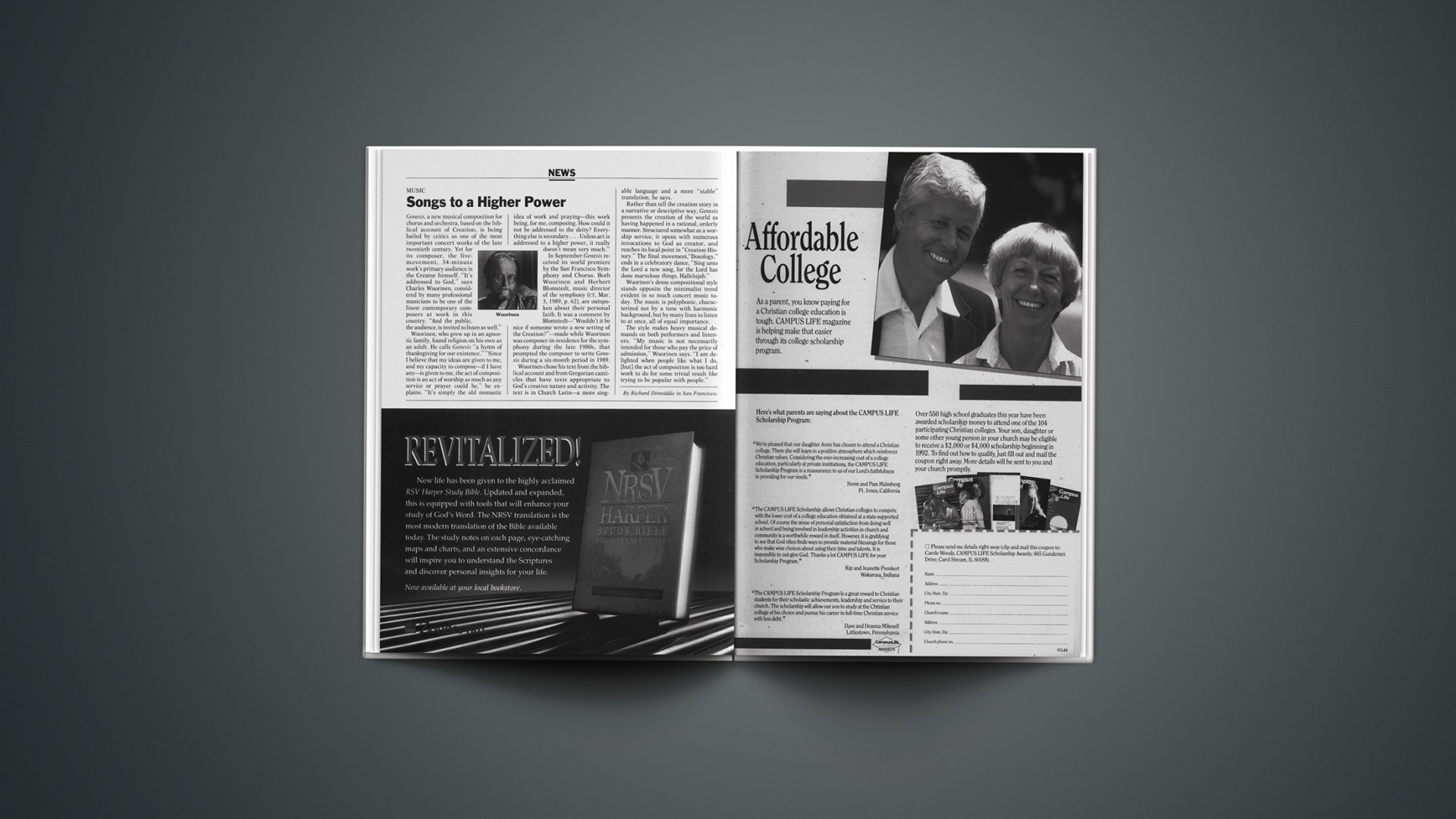Genesis, a new musical composition for chorus and orchestra, based on the biblical account of Creation, is being hailed by critics as one of the most important concert works of the late twentieth century. Yet tor its composer, the five-movement, 34-minute work’s primary audience is the Creator himself. “It’s addressed to God,” says Charles Wuorinen, considered by many professional musicians to be one of the finest contemporary composers at work in this country. “And the public, the audience, is invited to listen as well.”
Wuorinen, who grew up in an agnostic family, found religion on his own as an adult. He calls Genesis “a hymn of thanksgiving for our existence.” “Since I believe that my ideas are given to me, and my capacity to compose—if I have any—is given to me, the act of composition is an act of worship as much as any service or prayer could be,” he explains. “It’s simply the old monastic idea of work and praying—this work being, for me, composing. How could it not be addressed to the deity? Everything else is secondary.… Unless art is addressed to a higher power, it really doesn’t mean very much.”
In September Genesis received its world premiere by the San Francisco Symphony and Chorus. Both Wuorinen and Herbert Blomstedt, music director of the symphony (CT, Mar. 3, 1989, p. 62), are outspoken about their personal faith. It was a comment by Blomstedt—“Wouldn’t it be nice if someone wrote a new setting of the Creation?”—made while Wuorinen was composer-in-residence for the symphony during the late 1980s, that prompted the composer to write Genesis during a six-month period in 1989.
Wuorinen chose his text from the biblical account and from Gregorian canticles that have texts appropriate to God’s creative nature and activity. The text is in Church Latin—a more singable language and a more “stable” translation, he says.
Rather than tell the creation story in a narrative or descriptive way, Genesis presents the creation of the world as having happened in a rational, orderly manner. Structured somewhat as a worship service, it opens with numerous invocations to God as creator, and reaches its focal point in “Creation History.” The final movement, “Doxology,” ends in a celebratory dance, “Sing unto the Lord a new song, for the Lord has done marvelous things, Hallelujah.”
Wuorinen’s dense compositional style stands opposite the minimalist trend evident in so much concert music today. The music is polyphonic, characterized not by a tune with harmonic background, but by many lines to listen to at once, all of equal importance.
The style makes heavy musical demands on both performers and listeners. “My music is not necessarily intended for those who pay the price of admission,” Wuorinen says. “I am delighted when people like what I do, [but] the act of composition is too hard work to do for some trivial result like trying to be popular with people.”
By Richard Dinwiddie in San Francisco.










